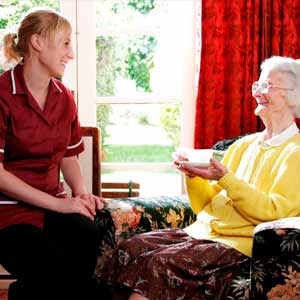
-
Trusts and In-Home Care
A trust is a legal arrangement that helps facilitate the transfer of money from one party to another. The plus side of these is that it gives people more flexible control of their assets since there are legal guidelines that can be arranged to ensure this. Trusts can be especially useful to an older adult since they can set aside money in the event that they need help funding their In-Home Care. The money does not necessarily need to be used for this if it is not needed, but legal documents can be drawn to stipulate exactly where the money will go in the event that it does become needed. There are a couple different types of trusts that you can use, and each has different implications when it comes to Medicaid in the event that you need to use this insurance. In order to decide which is right for your situation, consulting with an attorney that specializes in trusts and In-Home Care decisions will be most helpful.
Paradise In-Home Care offers quality Alzheimer’s In-Home Care to the greater San Francisco Bay Area.

